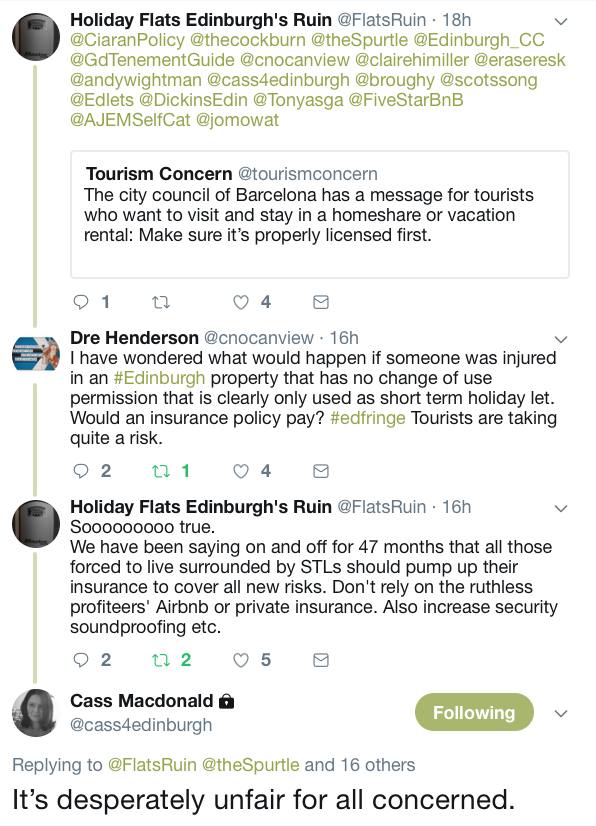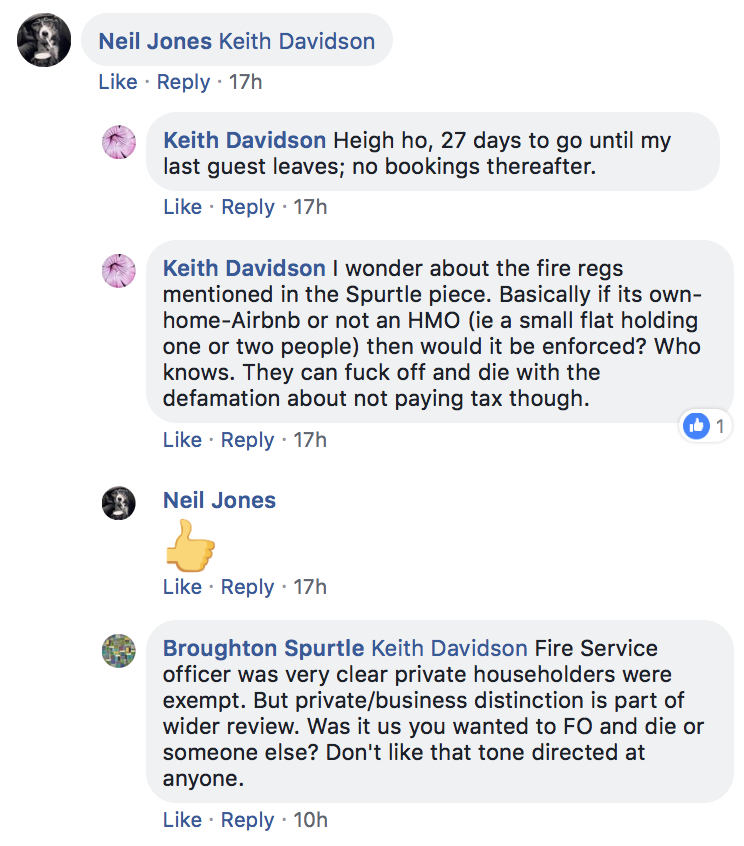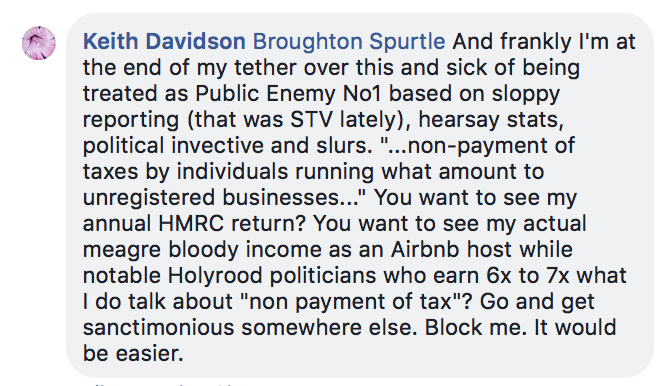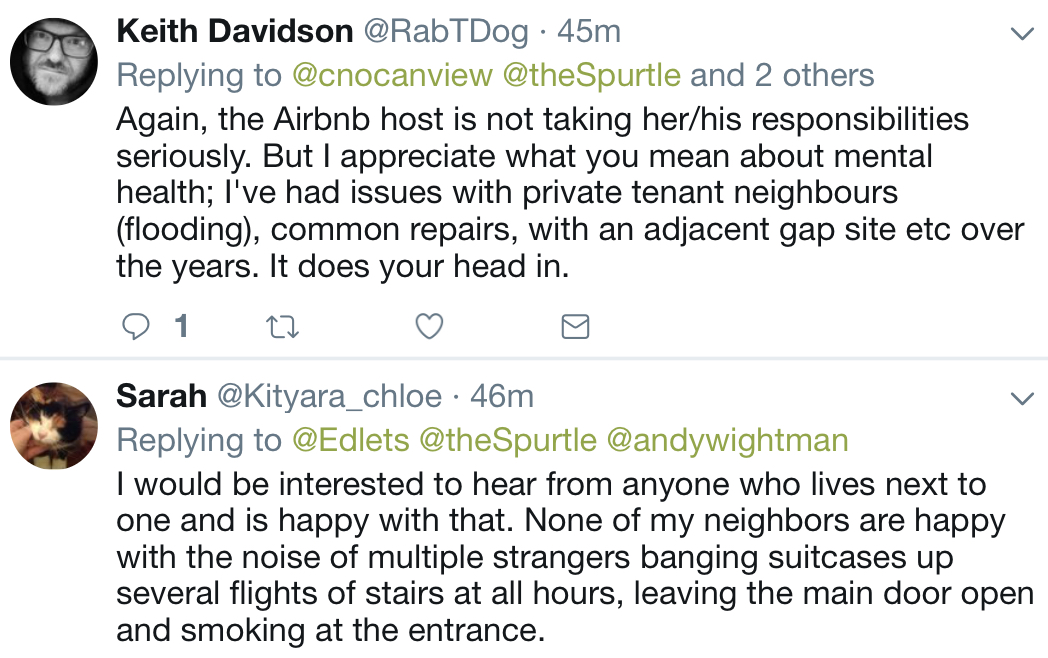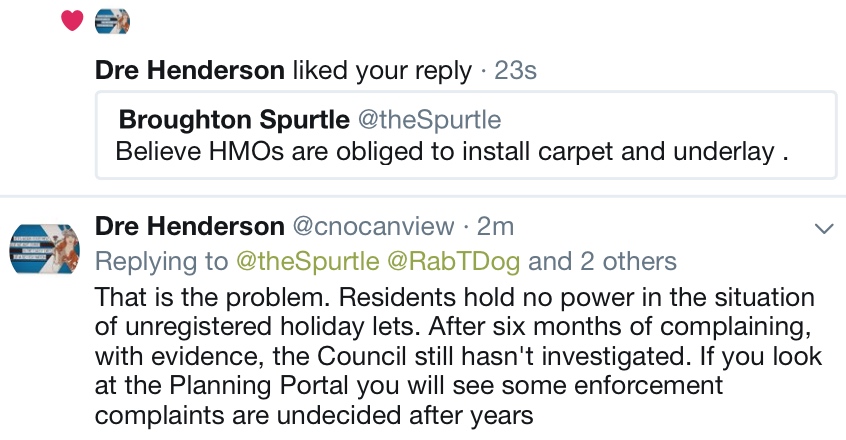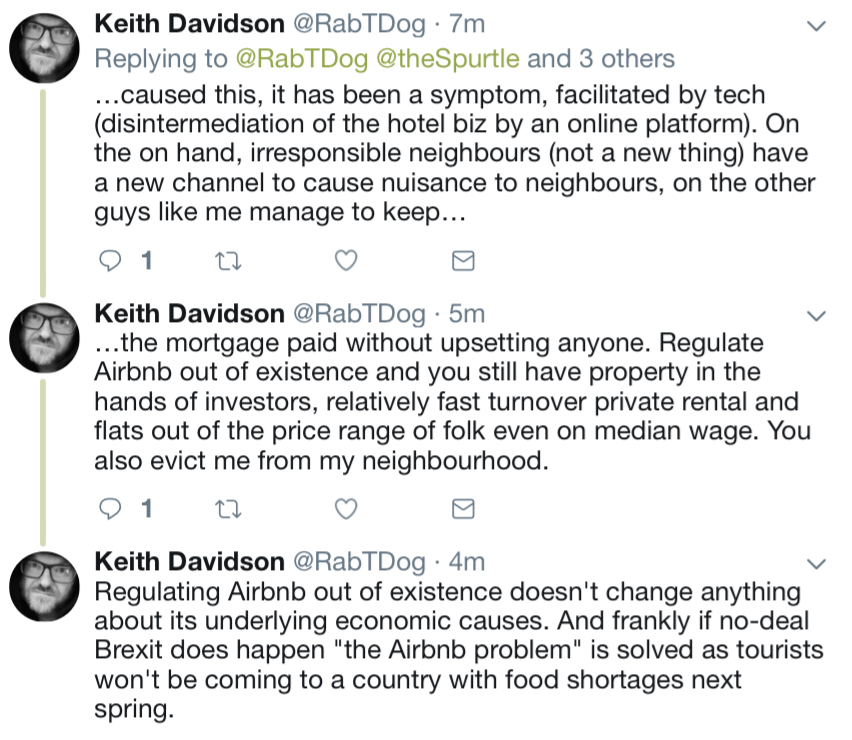
City of Edinburgh Council has taken stock of its existing powers, and set out a wish-list for new powers it wants from the Scottish Government, in a bid to control problematic short-term lets.
The findings are contained in a report going before the Corporate Policy and Strategy Committee for consideration on 7 August (see pdf at foot of page).
Concerns
Short-term lets have been part of the Edinburgh scene for decades. But the phenomenon has mushroomed in recent years with the rise of the Internet and cheap international air travel, and there are now at least 10k short-term lets in the city, 9k of them using the AirBnB platform.
The Council recognises the economic importance of visitors to the city, and does not seek to police those residents who let out a room now and again over the Festival period.
However, responding to widespread public complaints, the Council is concerned at loss of community, anti-social behaviour, loss of available housing stock, spiralling property and rent prices, increased strain on resources, and non-payment of taxes by individuals running what amount to unregistered businesses.

New team, old powers
The report recommends setting up a dedicated, cross-departmental team to deal robustly with complaints. This would mobilise existing powers such as:
- requiring owners to apply for planning permission when changing the use of a property
- applying the Antisocial Behaviour Notices (Houses Used for Holiday Purposes) (Scotland) Order 2011
- Trading Standards and Environmental Health legislation
- adequate collection of non-domestic waste.
The last two options require the Council to prove that a property owner is operating a business. This is more difficult than it sounds (and may prove legally contestable), but improved information sharing with HM Revenue & Customs is envisaged.
In addition, the report recommends working with AirBnB to promote self-regulation of voluntary industry standards. Limiting the number of days a property can be used would feature in any such conversation.

To properly regulate short-term lets, the report says Holyrood should pass legislation giving local authorities discretion to exercise extra powers.
Basically, the Council seeks permission to run a self-financing licensing system for each short-term-let property owner and operator, ensuring that they are fit and proper.
The ‘location, character and suitability’ of properties would be considered.
Such a system could cap the total number of properties used, or the number of days an individual property could be let out (45 days per year has been mooted).
Safety standards and checks could be imposed.
Furthermore, the Council wants Holyrood to ‘clarify and standardise’ definitions used in relevant legislation in order to facilitate effective Planning enforcement action.
Crucially, the Council also seeks Government measures that would: (a) remove any tax incentive for property owners to take a residential property out of the housing market; (b) ensure short-term-let operators pay a fair contribution to public services.
The short-term-let explosion has been described by one leading official as ‘the most vexatious issue faced by Edinburgh for years’. Tellingly, MSPs have noted the strength of feeling among their constituents and are, it seems, willing to respond accordingly.
Holyrood’s Expert Panel on the Collaborative Economy acknowledged the scale of the problem and the need for a solution in its report published on 10 July. It will work with Edinburgh Council and other local authorities to pilot appropriate schemes. Any such initiative, however, is still many months away.
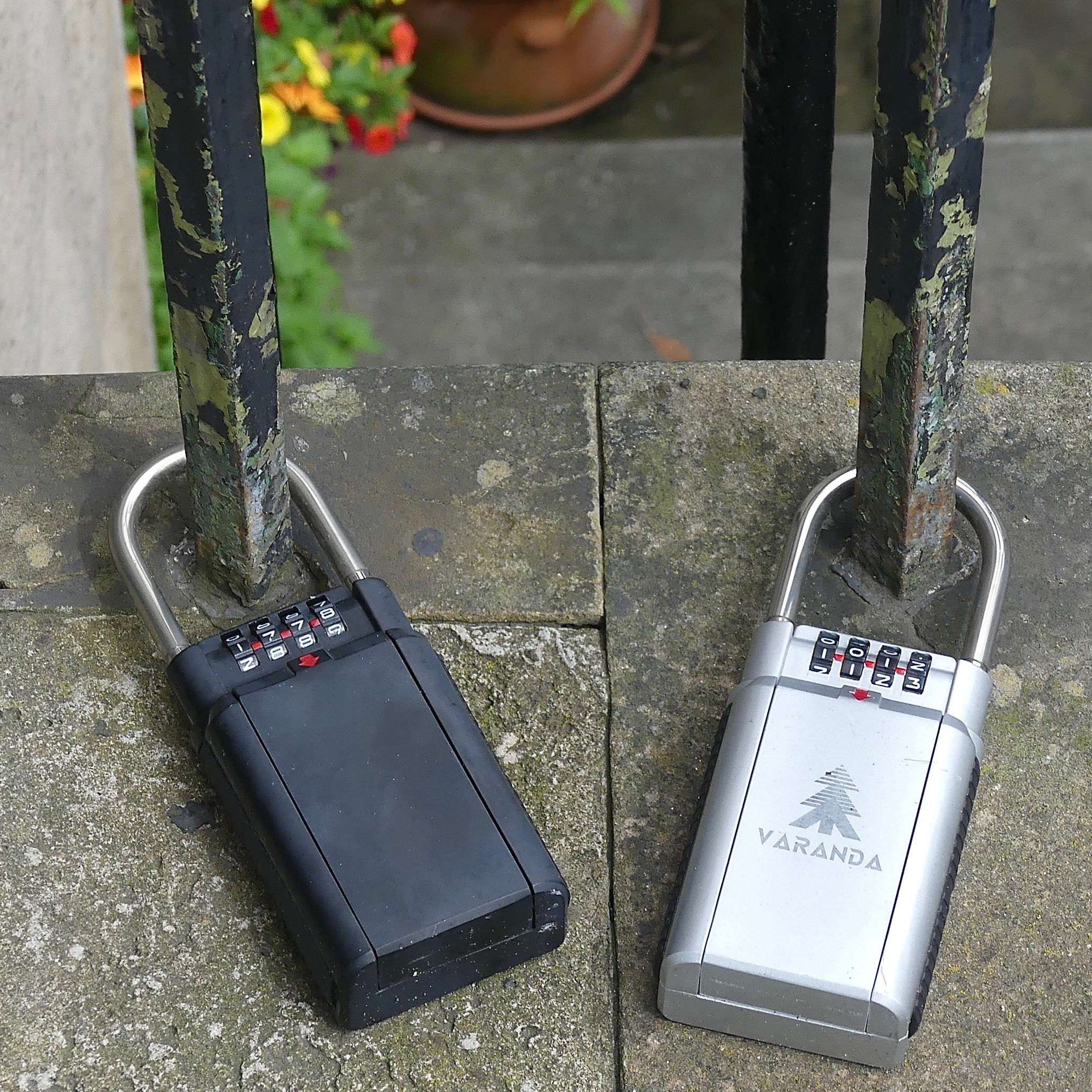
Love me tender
And finally, when these matters were discussed at the City Centre Neighbourhood Partnership meeting last night, an additional, previously little-considered, partial solution emerged.
A Fire Service representative pointed out that its Protection and Prevention officers already have the power to inspect HMOs and AirBnBs for necessary attributes such as fire-proof doors, smoke detectors, and fire alarms. Normally, deficient properties are given a list of improvements and a timescale to make them. But dangerously deficient businesses can be shut down immediately.
Inter-agency cooperation of this sort could prove a useful addition to the Council’s toolkit and was duly noted.
Got a view? Tell us at spurtle@hotmail.co.uk and @theSpurtle and Facebook
-----------------












